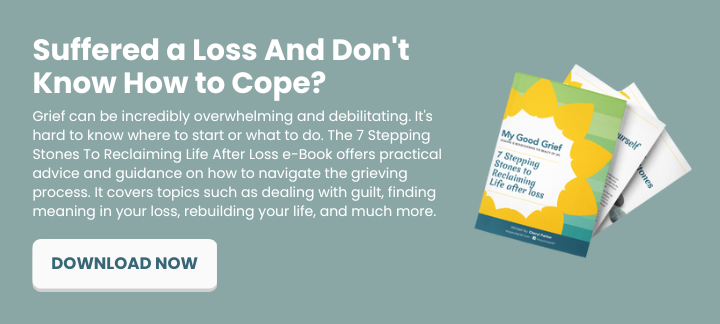This is a natural stage of growth for an adolescent and teen, but it is also a difficult transition in normal circumstances. When you put a loss on top of this, it can be very complex and more difficult to navigate for both the adolescent and the influencing adults. They need our time, attention and vigilant understanding as they work through their grief.
Depending on the grief you are experiencing, it can weaken your constitution, and for teens, they are just spreading their wings and proving their independence. Grief can rattle that for them. They are not children anymore and don’t want to need to “need you” in the same way, and yet they are not yet adults and still depend on you to catch them when they fall. Teens are getting a new found sense of justice as they grow up and having a death of a friend or young person can cause outrage and emphasize the injustice of it, and they can act out towards that.
Teens also can have feelings that question their own mortality that can also be very confusing and confronting for them.
Slowing Down for Grief
Grief is meant to slow us down. When you think about the symbols associated with the rituals of the funeral. Procession lines are slow, traffic slows down and sometimes stop. Flowers die, people take the day off work to attend the funeral and reflect on their loved one. This should also be allowed for the teen who is grieving.
School and work are a big part of their lives. There should be some allowances to slow down on these aspects, if needed. On the other hand, depending on the teen, they may want to keep things as “normal” as possible and continue these activities. You need to judge this depending on your teen. Some teens may throw themselves at their school work and see their grades go up, others may slide. There has to be room for all of it. We must also monitor this carefully, because a teen who is using their school or work to bury their grief, will not take the time to heal and will have long lasting impacts on their ability to grow into emotionally healthy adults.
Teen Healing Tips
- Redirect inappropriate behaviors – Ok to be angry but not ok to hurt others or themselves.
- Get into their world before counseling them – Shoot baskets with them, go for a burger or go shopping with them and keep the conversation open.
- Create meaningful memorials – Plant a tree, donate a plaque, start a student award program, create a memory garden.
Identifying Behaviors
It can be difficult to determine what behaviors are due to the loss and what behaviors are associated with just being a teen. The best practice is to judge based on developmental normal behaviors vs red flag behaviors.
Normal Adolescent behaviors
- Some limit-testing and rebellion
- Increased reliance on peers vs parents for support
- Egocentrism
- Increased moodiness
- Increased sexual awareness
- Impulsiveness, lack of common sense
Red Flag Behaviors
- Suicidal thoughts or actions
- Chronic depression, sleeping difficulties, low self esteem
- Isolation from family and friends
- Academic failure or overachievement
- Dramatic change in personality or attitude
- Eating disorders
- Drug and alcohol abuse
- Fighting or legal troubles
- Inappropriate sexual behaviors
Ongoing Support
You know your teen best. These are only some behaviors to be aware of. Don’t hesitate to reach out to a professional for help. Services are available to help your teen. Sometimes it is a death, that drives up other underlying unresolved grief in your teen that might not have been identified or acknowledged as grief before.
Society typically only identifies grief with death, however, there are many other losses that could affect our teens such as divorce, moving, relationships, health, self-esteem, trust, sexual abuse, robbery, and so many more. The death of a loved one can bring it all to the surface and they are exploding inside with complicated and complex grief issues.
Don’t be fooled by their seemingly strong, independent behaviors. Ensure their words are heard and feelings are acknowledged so they may heal their hearts.
Here are some other free resources if you would like to learn more:




.png?width=352&name=Dear.....%20(1200%20%C3%97%20628%20px).png)

.png?width=352&name=Helping%20Children%20Grieve%20(1200%20%C3%97%20628%20px).png)